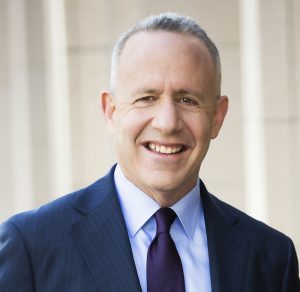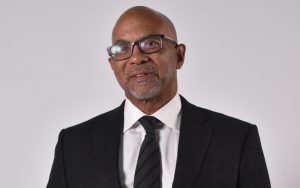SN&R’s recommendations in key contests on Nov. 3 ballot
Here are the endorsements from SN&R’s editorial staff, focusing on the most important local contests where our readers can have the biggest impact.
Besides studying written statements and arguments, we talked to both sides on the ballot measures and both candidates in the City Council races—remotely, of course. We’re not telling you how to vote; we’re giving you our guidance.
Measure A: No
“Strong mayor” was wrong for Sacramento when Kevin Johnson championed it and voters said “no” in 2014. It’s still a bad idea with Darrell Steinberg pushing for it and dressed up with racial and social equity.
Actually, the timing of Measure A is worse. This is a moment when we should be letting more diverse voices be heard in making decisions and becoming more democratic, not further centralizing power in one person and possibly increasing the influence of special interests.
Yes, the City Hall bureaucracy can be frustratingly slow. And Steinberg justifiably complains that the City Council is sometimes like having nine CEOs going in different directions.
But if a mayor can’t get the support of four council members on a big proposal, maybe it isn’t such a great idea after all. And the measure’s supporters still have difficulty making the case on what isn’t getting done without strong mayor, or pointing to clear successes in California’s five “strong mayor” cities: Fresno, Los Angeles, Oakland, San Diego and San Francisco.
Steinberg wants the increased powers in what he insists would be his final four years as mayor, though a last-minute opinion from the city attorney says that the two-term limit in the measure wouldn’t apply to him. While Steinberg isn’t likely to abuse them, who’s to say what future mayors might do?
The measure has two other major flaws. It sets aside at least $40 million a year for disadvantaged neighborhoods, including 25% for children. This is dangerous ballot-box budgeting. In a recession—like the one now, caused by COVID-19—it ties council members’ hands if they have to cut the budget.
Another big problem: Measure A does not create the ninth council district until the 2022 election. That means for the first two years, it would take six of eight council votes to override the mayor’s vetoes—a very high bar.
The measure has worthy, if rather vague, provisions requiring the city to evaluate the impact of its spending and policy decisions on promoting racial, gender and LGBTQ equity. Voters should take note, however, that Measure A is opposed by the two council members who represent the most disadvantaged neighborhoods, as well as many groups in those communities.
Besides, those equity pledges can be approved directly by the council. Indeed, that’s what happened with the ethics and transparency provisions in the 2014 strong mayor measure after it failed. The same should occur this time.

Measure C: Yes
Keeping Sacramento affordable is crucial to a fair and inclusive future. Once the COVID-19 crisis passes, we need to make sure that workers from all walks of life aren’t priced out of a growing city.
If Measure C passes, annual rent increases would be limited to the inflation rate, with a minimum of 2% and a maximum of 5%. That’s stricter than an ordinance passed by the City Council last year (which ends in 2024) and a statewide law (which ends in 2030) that both cap increases at 5% plus inflation, with a maximum of 10%.
Is your pay increasing by 10% a year?
While the cap is now set at 6% in Sacramento because of minimal cost-of-living increases, there’s no guarantee it will stay that low in the years ahead.
Measure C also bans evictions except for just cause, such as failure to pay rent, violations of the rental agreement or nuisance or illegal use. In some cases, the landlord would be required to pay at least $5,500 to $7,000 in relocation assistance, depending on the unit’s size.
The pandemic makes passing this measure even more urgent. While there are local and statewide moratoriums on evictions through the end of January, tenants will still have to pay back rent. If there are unreasonable rent hikes as well, many tenants won’t make it.
Even before COVID-19, 44,000 voters signed petitions to get a strict rent control measure on the ballot.
On the other side of that grassroots effort, there’s a disturbing avalanche of special interest money flowing into the No on C campaign.
UPDATE: The campaign committee sponsored by the California Apartment Association reported spending more than $1.1 million through Oct. 17.
On Sept. 23, the National Association of Realtors dumped $250,000. That’s on top of nearly $425,000 in cash, plus $191,750 worth of polling from the campaign committee opposing Proposition 21 on the statewide ballot, which would allow cities to extend rent limits to many single-family homes, as long as they are at least 15 years old. The California Association of Realtors and its PAC has given $167,500 so far, the California Apartment Association has put in $80,000 and various corporate landlords have donated tens of thousands more.
On the other side, SEIU Local 1021—which represents 54,000 local government, nonprofit and health care employees in Northern California—has given $145,000 to the pro-rent control campaign and the Sacramento County Democratic Party has donated $20,000.
Still, there are two arguments against the measure worth considering. One is that it doesn’t actually lead to new affordable housing.
But the solution isn’t to defeat Measure C. It’s to act.
That means finding permanent funding sources, which includes getting a $100 million affordable housing trust fund back on track. It would be financed by borrowing against Measure U sales taxes, state grants and private money, but was put on hold as tax revenues plunged during the pandemic.
Also, the city needs to restore its inclusionary housing ordinance, which until the council gutted it in 2015, required developers to include 15% affordable units in any residential project.
But until construction gets going, stronger protections for renters are needed right now to keep them in existing housing.
The other significant criticism is that a new rental housing board will be too powerful and expensive. The nine-member board—eight elected from council districts and the ninth appointed by the mayor—would set rent increases, conduct investigations, decide penalties for violations and can charge landlords a fee and demand city funding for all “reasonable and necessary expenses” of staff and operations.
While there’s reason for concern about the board, it’s not a disqualifying problem. If Measure C passes, committed, reasonable people need to run for the board and it’s up to voters to choose them.
The city fought tooth and nail to keep the measure off the ballot and will be in court trying to get it thrown out if it passes. What it should focus on instead is building more affordable housing.
City Council, District 2: Allen Warren
Incumbent Allen Warren has his issues. Still, he’s learned during his nearly eight years on the council, has shown an independent streak and stepped up during the pandemic to help his district.
And he’s a safer choice than Sean Loloee, a political newcomer who bested Ramona Landeros, a Twin Rivers Unified schools trustee, in the March 3 primary to make the Nov. 3 runoff.
Loloee, who moved from Oakland in 2000 and owns Viva Supermarket, has an appealing immigrant story and an attractive platform to help family-owned businesses, deal with homelessness and improve libraries and parks.
But especially during the twin crises—the COVID-19 pandemic and police violence—this district desperately needs effective leadership, and it’s always a risk to elect someone without much civic involvement.
Loloee, who recently joined the board of River City Food Bank, can continue building his track record and preparing himself to run again in four years, when the seat could very well be open.

Warren is thinking about running for mayor in 2024, but this contest should be a wake-up call to pick up the pace on his priorities of jobs and housing—and to listen to neighborhood leaders who feel ignored. Some of them are backing Loloee, who also has endorsements from the city police union and former district Councilwoman Sandy Sheedy.
One other point that must be made: It’s disconcerting how much of their own money both candidates are spending to get elected. Loloee has put $50,000 into the fall campaign so far, on top of $60,000 he loaned himself for the primary. Warren, who has a history of self-financing, loaned himself $130,000 this year for his 2020 campaign, though he’s repaid himself $59,000 so far.
Those are eye-popping amounts for a district council race. While it may not be buying a seat, it’s not grassroots support, either.
City Council, District 8: Mai Vang
UPDATE: SN&R is changing its recommendation in this contest to support Mai Vang.
We don’t make this decision lightly. But what has happened since publishing our initial endorsement on Oct. 8 has tipped the scales in what was always a very close call.
In his endorsement interview with SN&R in September, Les Simmons said he was in favor of Measure C, the local rent control measure that we also support but that is strongly opposed by the real estate industry.
Since then, independent expenditure campaigns funded by the California Association of Realtors and the National Association of Realtors have reported spending more than $100,000 in support of Simmons and against Vang. While the spending cannot legally be coordinated with the Simmons campaign, it’s still an astounding and worrisome amount of special interest money pouring into a district City Council race.
Asked about the real estate money, the Simmons campaign said on Oct. 15 that he actually opposes the rent control ballot measure and instead supports the less strict ordinance passed by the City Council last year.
The most charitable explanation is that Simmons simply changed his mind. The most problematic is that the Realtors money influenced his position on a hotly contested policy. In any case, some voters may have cast ballots without knowing where he really stands on rent control.
That’s a risk of voting early; it’s also a danger of endorsing in time for when mail ballots first arrive in early October: A major development can change a campaign and judgments on a candidate’s strengths and weaknesses.
So for those voters in District 8 who haven’t returned their ballots yet, we encourage you to support Vang.

We stand by the rest of our earlier endorsement:
We couldn’t pick between Les Simmons and Mai Vang before the March primary so endorsed them both for the November runoff. The decision isn’t much easier now.
They are both accomplished community leaders, and either will be a strong addition to the council come December.
He has a stronger track record in the community and a deeper experience of advocacy, so will bring both substance and passion to political power.
During the pandemic, Simmons, senior pastor at South Sacramento Christian Center, has been on the front lines of getting food and masks to residents in need.
At at time of racial reckoning, especially with anti-police violence protests, Simmons has been engaged on the issue well before George Floyd. He was the first chairman of the city’s community police review commission, was arrested during a Stephon Clark march and has already been working inside City Hall on police reform.
Still, we see the arguments for Vang, whose term as Sacramento City Unified school trustee ends in November.
She has a master’s degree in public health to help steer the city through the COVID-19 pandemic and has the community organizing experience to push the council to do better on racial injustice.
It’s also significant that Vang is allied with Katie Valenzuela, the councilwoman-elect in District 4 who could use a partner to move the council in a progressive direction. And it’s noteworthy that Vang, 35, would join Valenzuela, 34, in representing a younger generation on the council. But Simmons is only 42, himself.
Like we said, it’s not an easy choice.
Other recommendations:
President: Joe Biden
U.S. Congress, District 4: Brynne Kennedy
U.S. Congress, District 6: Doris Matsui
U.S. Congress, District 7: Ami Bera
Sacramento Measure B: Yes
Sacramento County Board of Supervisors, District 3: Gregg Fishman
Proposition 15: Yes
Proposition 16: Yes
Proposition 17: Yes
Proposition 18: Yes
Proposition 20: No
Proposition 22: No
Proposition 25: Yes






The Bee just rescinded its endorsement of Warren. Will you show such common sense and decency?